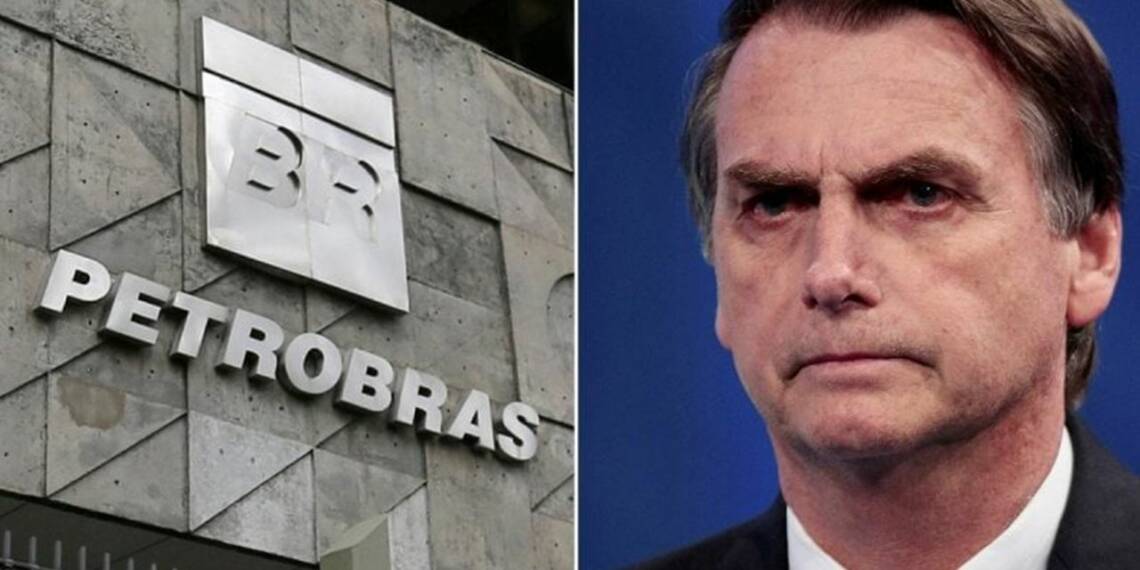Petrobras lost nearly a fifth of its market value after Brazil’s President Jair Bolsonaro appointed an army general to lead the company in an apparent attempt to stabilise fuel prices, triggering a crisis of confidence as investors became sceptical of his administration’s commitment to free-market policies.
The decision by Bolsonaro to nominate Gen. Joaquim Silva e Luna, who worked alongside the president during Brazil’s military dictatorship decades earlier, was a setback for the oil producer. Following an overspending spree under previous administrations that nearly drove the corporation bankrupt, Petrobras—officially Petróleo Brasileiro SA—had spent the previous few years seeking to recover investors’ confidence by selling billions of dollars of properties.
TS Lombard, an investment-research firm in a note to the investors on Monday said, “Bolsonaro’s impetuous decision to replace the CEO of Petrobras with an army general is a red flag indicating a turn towards populist policies.”
Mailson da Nóbrega, a Brazilian economist and former finance minister said that Bolsonaro’s policy is “a complete disaster.” He said that by interfering in Latin America’s largest corporation, Bolsonaro is increasingly governing like a populist. “It instils fear in other parts of the government…it will take a long time for us to recover from this,” he said.
Between 2011 and 2016, Petrobras was used by the leftist Workers’ Party to spend around $30 billion on gasoline and diesel subsidies to tackle inflation. According to prosecutors, it has lost billions of dollars to corruption in a scandal involving business executives and politicians.
Bolsonaro dubbed Petrobras’ management as “cowards” for recent fuel price hikes while speaking to crowds of supporters on a beach. He accused the business of pandering to investors and having “zero loyalty to Brazil.”
Although the right-wing populist leader has argued that his acts did not constitute “interference” in the corporation, but it has raised fears among foreign investors that the Brazilian government intends to take a more interventionist approach to the economy in the run-up to presidential elections next year.
When Bolsonaro ran for president as an outsider, many in Brazil’s influential business lobby supported him, believing he would introduce aggressive privatisation and modernization programme and amend the constitution to boost the country’s finances.
However, with the exception of a major pension overhaul approved in 2019, the majority of the major reforms are yet to take place. As election nears, investors are becoming increasingly concerned that Bolsonaro will increase populist policies in order to secure a second term.
Fears of further government interference into the market were stoked when Bolsanoro suggested that similar measures could be taken. “If the press is worried about the [CEO] switch, there will be more next week. We will put a finger on electricity which is also a problem,” he said.
Pedro Lang, an analyst at Valor Investimentos, said that the insecurity and the fear of what may come next have reached new heights. He said, “This insecurity, fear of what may come, of what the next interferences will be (is what) we are afraid of.”
Bolsonaro recently chastised the president of a state bank over payroll cuts, slowed privatisations of state-owned companies, and sabotaged promised changes, including one that would have made it easier to dismiss civil servants and reduce their benefits. In the meantime, he has drawn comparisons in the local press to another military man-turned-president: Venezuela’s late socialist firebrand Hugo Chavez.
For many investors, Bolsonaro’s announcement has killed the dream for Brazil, to be guided by free market. But Bolsonaro came to power based on his right wing-populism, his sudden turn back to maintain and increase state monopolies will severely hurt his chances for re-election. The move of a populist takeover will strain his relations with the business class in Brazil, who had supported him in his presidential campaign in the last elections. Bolsonaro is committing political suicide and this is the onset of his downfall.








